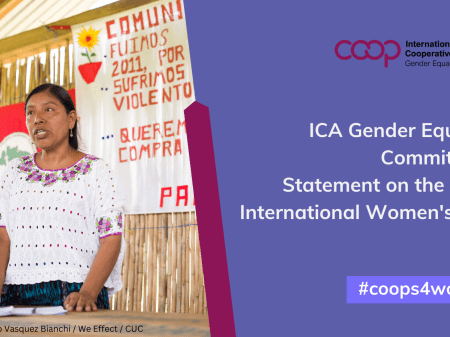
Co-operatives in the Americas expressed their support for credit and saving co-operatives in Puerto Rico
The administrative council of Co-operatives of the Americas expressed support on behalf of the co-operative movement in the region for the proposals presented by credit and saving co-operatives in Puerto Rico, which have been affected by the moratorium or the restructuring of debts that that government has with credit unions due to the sector’s investment in government securities.
On 10 March 2016 the council met in San Juan in Puerto Rico, where it revealed its concern regarding the severe impact of that the situation could have on a great number of saving and credit co-operatives and expressed its support for the solution proposed the affected co-operatives and presented to the National Resources Committee of the USA’s Congress in February.
The proposal contradicts the government’s proposal, which suggests renegotiating he debt leaving from the current market price displayed by banks, which, in some cases, would result in a decrease of up to 80% of their nominal value. Co-operatives believe that they should not face the same conditions as speculative investors such as hedge funds, which bought the securities at lower prices. Unlike them, co-operatives bought securities at their original price, investing in the country and trusting its institutions. Co-operatives of the Americas’ council issued a formal statement supporting unconditionally the proposal presented by Puerto Rican co-operatives and asking the executive and legislative powers of Puerto Rico and USA to take the necessary measures to protect and safeguard the statutory capital and the resources of the co-operative financial system.
View the Declaration of Co-operatives of the Americas (in Spanish)
Co-operatives of the Americas and DGRV redefine their unified model of Social Co-operative Balance
From the second semester of 2015 with various activities taking place in Costa Rica, Peru and Paraguay, Co-operatives of the Americas and DGRV have continued to work intensely on the adoption of the methodology of the Social Co-operative Balance, with the aim of generating a systematic and unified model that contributes to the evaluation of management and strategic planning in co-operatives.
The initiative is the result of an agreement that Co-operatives of the Americas and the German Confederation Raiffeisen (DGRV) have signed in September 2015, with the objective of joining efforts and sharing knowledge acquired during over a decade of working on the issue of Social Co-operative Balance.
The process of the Social Co-operative Balance analyses the management of the co-operative enterprise leaving from the co-operative principles, looking at their performance in terms of fulfilling their mission and vision, highlighting the co-operative difference.
The weight of Argentinian agricultural co-operatives
The Intercooperative Confederation of Farming (Coninagro), the body that represents agricultural co-ops in Argentina, has published the latest stats on the real dimension of the sector within the national economy.
The Argentinian co-operative movement accounts for 22% of the total agricultural production and has a complex economy system that provides employment to more than 500,000 people and that expands “from small communities in which they operate directly to supermarket chains in ports.”
Cooperatives are responsible for 20.5% of the production of the main grains (soy, corn, wheat and sunflower), 20% of rice, 14% of cotton, 7.5% of wool, 25% of herbs, tea 45%, 26% dairy, 20% honey, 7% of cattle, 33% of wine, 17% of unfermented wine, 20% of tomatoes, 20% of pepper and 45% of tobacco.
Photo: San Juan in Puerto Rico




